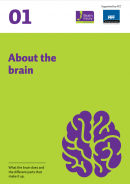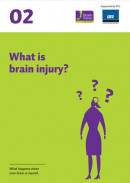Your child may experience a variety of symptoms or difficulties following a brain injury – it depends on the type of injury and how serious the injury is.
Mild traumatic brain injury
Most children who have a mild traumatic brain injury (also called a concussion) get better within 2 to 3 weeks, although they can take a little longer.
Symptoms you may notice include:
- headache
- tiredness
- changes in sleeping patterns
- some dizziness
- sensitivity to light, noise or busy environments
- being more grumpy or irritable or getting upset easily
- taking longer to process information or respond to questions
- finding it harder to concentrate on schoolwork or other activities.
You can also look at caring for your child after their head injury (external link)for advice on:
- how to care for your child after a mild brain injury/concussion
- warning signs to watch for
- when to seek medical help
- when to return to school, sport and other activities.
Your healthcare provider or hospital staff can also give you advice. If your child has more symptoms or they're taking a while to improve, they may need to see a concussion service funded by the Accident Compensation Corporation (ACC).
More serious brain injury
Children who have a more serious brain injury (whether through an accident or illness) can have longer-term symptoms. These can continue to affect them after they have left the hospital. Common long-term symptoms include tiredness (or fatigue) and changes in thinking, behaviour and emotions.
Tiredness (mental and physical)
- needing more sleep at night and feeling sleepy in the daytime
- running out of brain energy quickly while concentrating on schoolwork
- getting tired more easily after physical activities.
Read more about mental fatigue after brain injury(external link).
Other physical symptoms
Other physical symptoms can include:
- headaches
- ongoing sensitivity to noisy or busy environments
- problems with balance and coordination.
Thinking difficulties
Children may have difficulties with their thinking (also called cognitive difficulties). These can include:
Behavioural and emotional symptoms
Your child may experience behavioural and emotional changes, such as:
- getting upset or angry more easily
- behaving more impulsively
- being restless or overactive
- being easily distracted
- having difficulty coping with change.

Image credit: Canva









